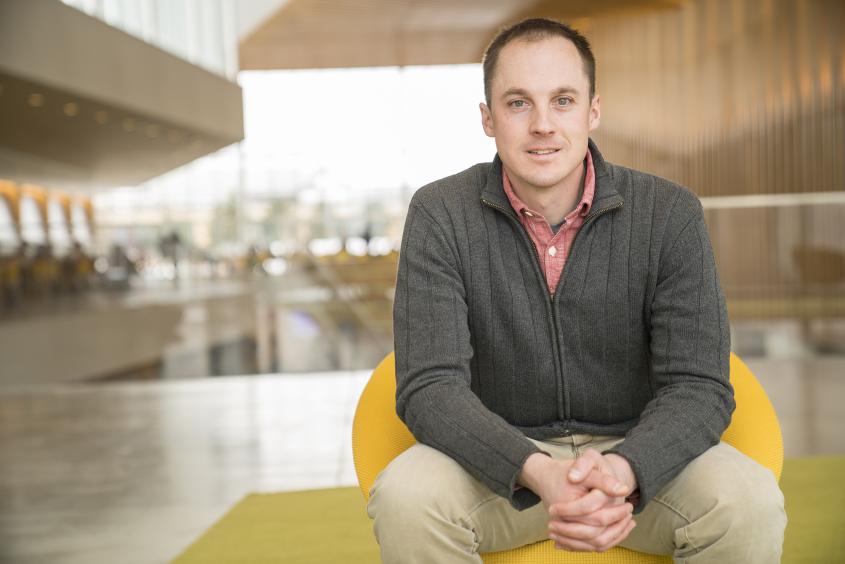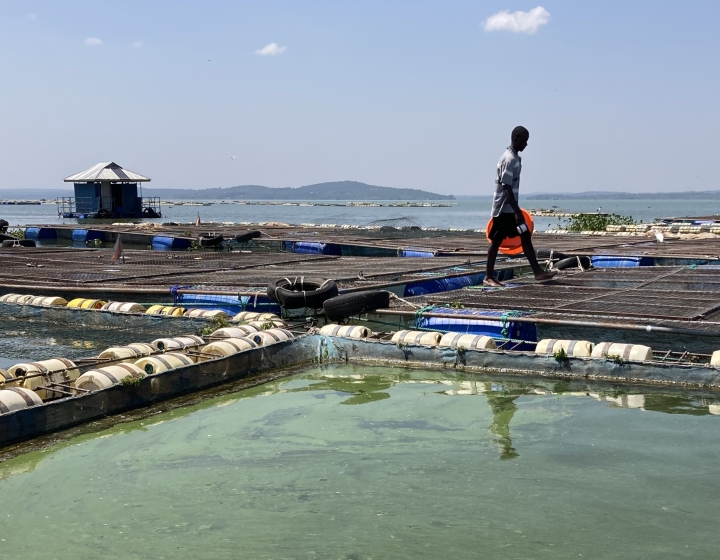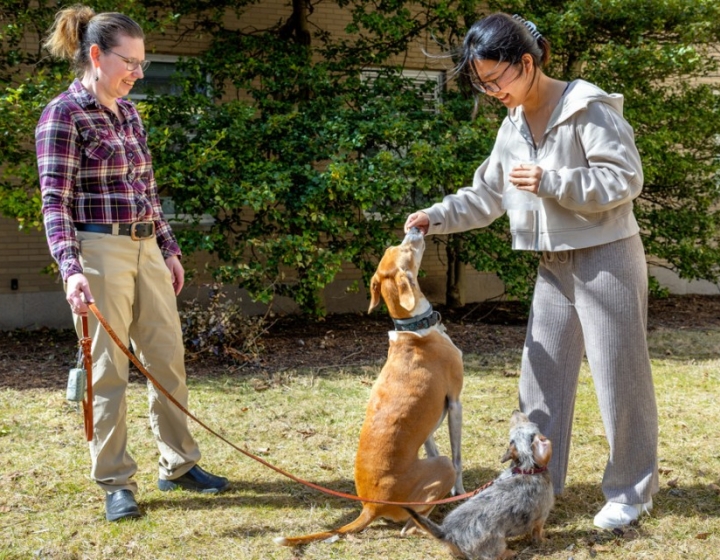Major Sean Stockwell, D.V.M. ’11, serves country through public health, veterinary expertise
Major Sean Stockwell, D.V.M. ’11, has a few extra responsibilities than most veterinarians. “I consider myself a soldier first, an officer second, and a veterinarian third,” he says. As Branch Chief and Veterinary Preventive Medicine Officer in the United States Army, Stockwell manages 55 civilian and uniformed staff members that provide veterinary and public health services to 12 military installations around Norfolk, Virginia.
Stockwell was compelled towards a career of military service from a young age. As a high school junior growing up in rural upstate New York, he was deeply affected by the 9-11 attack, and wanted to enlist immediately. With his parent’s encouragement, Stockwell opted to instead pursue a degree at Norwich University, the oldest private military college and birthplace of Reserve Officer Training Corps (ROTC).
On the advice of his Army ROTC Military Instructors at Norwich, Stockwell next followed the footsteps of his father, Dr. David Stockwell, who graduated from the Cornell University College of Veterinary Medicine in 1980. Receiving an U.S. Army Health Professional Scholarship Program (HPSP) Scholarship, Stockwell attended Officer training programs each summer during veterinary school as well as completing a Master of Public Health (MPH) degree through the University of Minnesota, Twin Cities Campus. While at the College of Veterinary Medicine, Stockwell met his future wife, Emily Stuebing D.V.M ’10, who ended up serving in the U.S. Army as well. At CVM, Stockwell says he “was taught to be an independent thinker. I didn’t know everything, but I was taught how to figure it out.”
The two of them then embarked on their military service, with Stockwell doing his first assignment in Afghanistan. “I’d never felt so engaged as when I was deployment,” he explains. “It utilized all aspects of my training.” There, Stockwell performed many different jobs, including providing comprehensive veterinary care to military working dogs, food inspections — in the midst of combat zones and extreme conditions, which made the basic skills he had received when he joined vitally important. “In that role I was just another soldier. Fundamental soldier skills are critical to accomplishing our mission,” Stockwell explained.
Currently, Stockwell works in the Norfolk branch, overseeing veterinary support 12 different installations. Stockwell’s daily work is full of variation. “It’s a choose your own adventure kind of job,” he explains. “There’s lots of flexibility due to the variety of things to that need to be done on any given day.”
For those considering a veterinary career in the military, Stockwell notes that there are several pathways they could take, including veterinary pathology, laboratory animal medicine, research, and public health. “This is a dual profession — that of veterinary medicine and the profession of arms,” he says. “This kind of work isn’t for everybody, but it’s definitely rewarding in its own right.”
-By Lauren Cahoon Roberts





